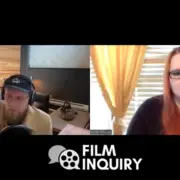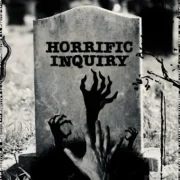“I Love The Art Of Conversation” – An Interview With POSTHUMOUS Director Lulu Wang
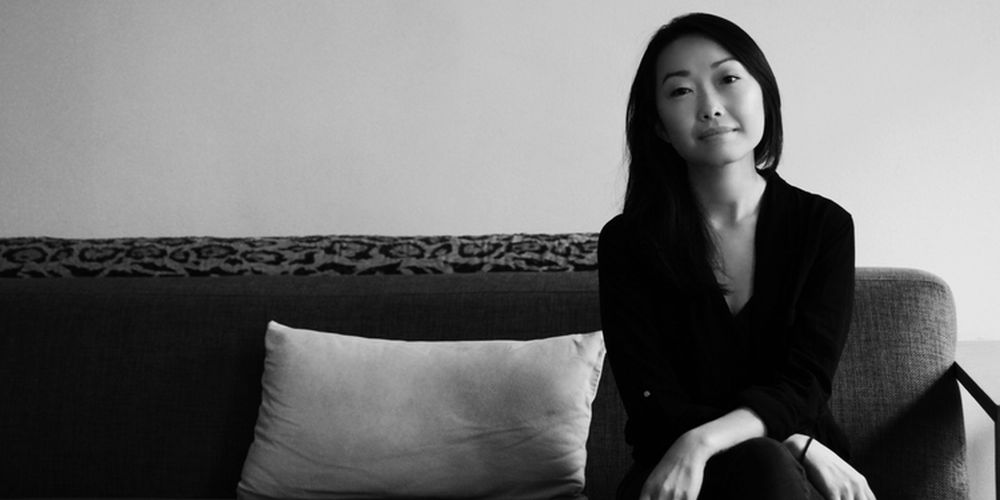
Manon de Reeper is the founder and CEO of Film…
A while ago, I had the pleasure to be introduced to Lulu Wang. Before I got to watch her first feature film Posthumous, I got to watch her short Touch (watch Touch here). While watching that, I knew I was in for something great with her first feature.
Touch was a deeply moving short, telling the story of an old Chinese man, who, due to his cultural naivety, gets into trouble. He touches a young American boy, which would not be harmful in his own culture. He struggles with his son and the American legal system to learn to understand what touching someone means in the American context. The film went on to get nominations at festivals, as well as garner several wins.
In Posthumous, a struggling artist finds himself accidentally reported dead. He sees his art sales boom, and in a plot with his manager decides he will pose as his grieving twin brother. Soon, a reporter looking into the case enters his life and he finds he affects him in ways he didn’t expect.
Wang continues to place culture and cultural differences on the forefront in Posthumous; the film is set in Berlin, Germany, and the characters are all of different nationalities. Being an emigrant myself, I found a lot I could relate to. Moreover, it’s a sweet romance, as well as an exploration of more existential questions, which I always enjoy in films.
Wang herself was born in Beijng, China, before moving to the United States with her parents. She started playing the classical piano at age four, and trained as a concert pianist all the way through high school. She also always wrote; her mother is a writer, and she knew that writing would always be a big part of her life.
However, she always felt those two art forms are too isolating, and although she enjoys her solitude, she also draws energy from being with other people. When she took Film 101 in college, it felt very natural to her; it offered her the chance to combine her passion for writing with her music background, and to collaborate with others. What she loves most about film is the process. As long as it takes, she loves to take the seed of an idea and watch it expand. You live and grow with a film.
Manon de Reeper for Film Inquiry: From your short I could tell you have a great sense for the importance of cultural differences, and how foreigners are forced to adapt to their new (cultural) surroundings. I was struck by how carefully you treated the environment of Posthumous; Berlin is often portrayed in film as a filthy and industrial city, though as you portrayed it, you gave it heart. How did you decide to place it there?
Lulu Wang: Yes, as an immigrant in America, I’ve always been very aware of environment as a character. For Posthumous, I wanted a setting that reflected some of the questions I grappled with in the story. Where we look for beauty and how we define beauty, for example. I think I was also looking for a specific mood.
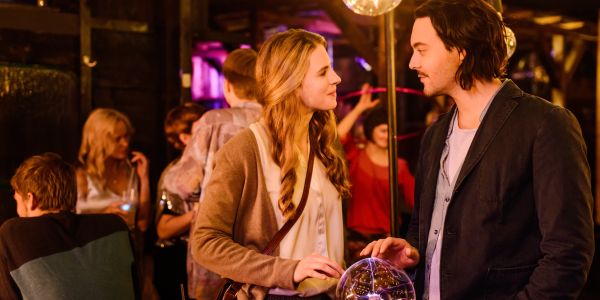
It was spring the first time I visited Berlin. That probably influenced my first impression of the city in a significant way. I just remember falling head over heels with a sense of awe and adventure. There was art in public spaces, there were pop up restaurants and galleries, there were people from all over the world speaking all different languages.
I was young, I was in love, and I was about to make my first film. That’s what I mean about living a film – all of these factors affected my relationship with Berlin and ultimately my choices for the film. Maybe I was projecting a lot, but I was making a romantic-comedy after all.
Could you tell us a little bit more about the choice to make the film so unusually international? I love how you cast Lambert Wilson in the role of the art dealer, as he is the absolutely perfect actor to underline that internationality.
LW: The producer of the film, Bernadette, is Swiss German and I was born in Beijing. We both decided to embrace our international backgrounds and set the film somewhere different. Shanghai was also on the list, before we ultimately selected Berlin.
Having seen Lambert in both comedic and dramatic roles, he was the obvious choice. He was phenomenal to work with. He’s made over 100 films, he speaks at least a dozen languages and he’s worked with the most renowned directors around the world. It was quite intimidating, but we had a blast.
I love the idea that an artist dying suddenly gets them the appreciation they never got while alive, and it being a hoax. What sparked this idea?
LW: Marketing is such a huge part of our world today. I’m very sensitive to the amount of hype that inevitably accompanies art and artists. I think the initial idea came around the time Michael Jackson died.
I kept thinking about the perceived value of an artist after they die, and it made me question my own motivations for creating art. I wanted to explore those motivations and ask some questions about what we value as a society and as individuals.
The dialogue in the film is great, the conversations between McKenzie and Liam are quite philosophical, and yet, it felt like natural conversations that any two 20-somethingers could have.
LW: I love the art of conversation. The dialogue was pulled straight out of conversations I had in recent years. I read a lot of philosophy and constantly mull over philosophical questions, which drive some friends crazy. My absolute favorite thing in life is a 3-4 hour dinner with great wine and even better conversationalists.
I was especially impressed by Liam’s art, and how consistent it was in style. What was the process like, and who are the people behind his art?
LW: It was a pretty crazy process. One of our co-producers initially hired an art consultant and a real artist. They gave me this huge lecture about how it was important to feature “real art” in the movie, in order to be considered “authentic.” The problem was that a real artist didn’t want to be told what to create or how to create it.
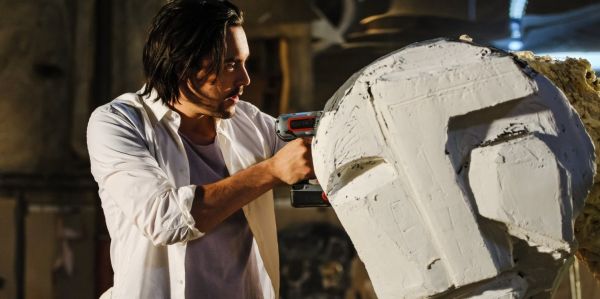
Neither he nor the art consultant understood that while a chair draped in cloth might qualify as contemporary art in a gallery, it wouldn’t be identified as art on screen. They also didn’t understand things like cinemascope, which meant that the door with a boxing glove sticking out the bottom wouldn’t fit entirely on screen. Not being able to see the boxing glove would make it difficult to convey that this door was anything but a door.
Anyway, there were a lot of mind-numbing debates about what’s art and what’s decor and the importance of authenticity. It drove me mad. I wish I could’ve worked some of these conversations into the movie – it was that absurd. We finally handed the art creation to our brilliant production designer Sebastian Soukup.
It was Sebastian’s idea to have Liam make sculptures rather than paintings to add more dimension to our shots. He and I selected a few artists as inspiration, Sebastian created miniature models of the pieces and then we hired a team of builders to build everything. Jack is an artist himself so he did a bit of painting himself!
The music struck me as very well-selected for the film. There is some jazz, some classical, some upbeat and more poppy songs – how did you select the music for the film?
LW: I had certain pieces in mind when I wrote the film, but throughout prep and production, I was constantly looking for music. We had a music supervisor/DJ who frequently sent over playlists. It was great. My brother Anthony is also a musician and he sent over a lot of obscure artists that I ended up using. We also had a great Berlin-based composing team, Dustin O’Halloran and Brian Crosby.
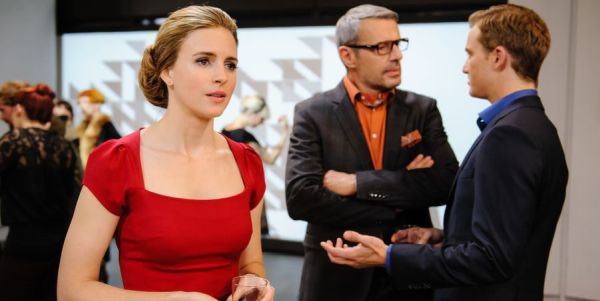
Initially, McKenzie, the reporter and star of the film, annoyed me ever so slightly with her wide-eyed, somewhat naive approach to reporting on this story. As the story evolves, I came to appreciate her a lot more, as she wasn’t as naive as she initially seemed to be. Even though she seemed like a privileged girl with not much depth to her,there actually is a lot more to her. Could you tell us a bit more about McKenzie and how she came to be?
LW: It’s funny – Westerners always refer to “first world problems” sarcastically, but as someone who’s experienced different worlds and different problems, I actually find so-called first world problems to be interesting from a psychological perspective.
My parents used to always tell us about the terrible things they experienced in China: famine, lack of freedom, limited choices. In America, they complained about loneliness, lack of purpose, too many choices. If you ask my mother which set of problems is worse, she’ll tell you that they’re different, and can’t be compared. They’re difficult no matter what, when you’re the one going through them.
I know so many people like McKenzie. They may appear be privileged, but they’re imprisoned by their own fears and expectations. So what’s worse: trapped by poverty or trapped by your own mentalities? I also don’t know which is easier to change. I guess I wrote McKenzie and Liam to reflect the two contradicting parts of my own personality. Their discussions are often debates I have within myself.
Thanks so much for taking the time to talk with me, Lulu!
I can warmly recommend Posthumous to everyone who enjoys a smart, sassy rom-com. It’s heart-warming, and is set in one of the most vibrant cities in the world – Posthumous will want to make you go there.
Posthumous will be available August 16th on DVD, iTunes and On Demand.
Does content like this matter to you?
Become a Member and support film journalism. Unlock access to all of Film Inquiry`s great articles. Join a community of like-minded readers who are passionate about cinema - get access to our private members Network, give back to independent filmmakers, and more.
Manon de Reeper is the founder and CEO of Film Inquiry, and a screenwriter/producer. Her directorial debut, a horror short film, is forthcoming in 2021.






